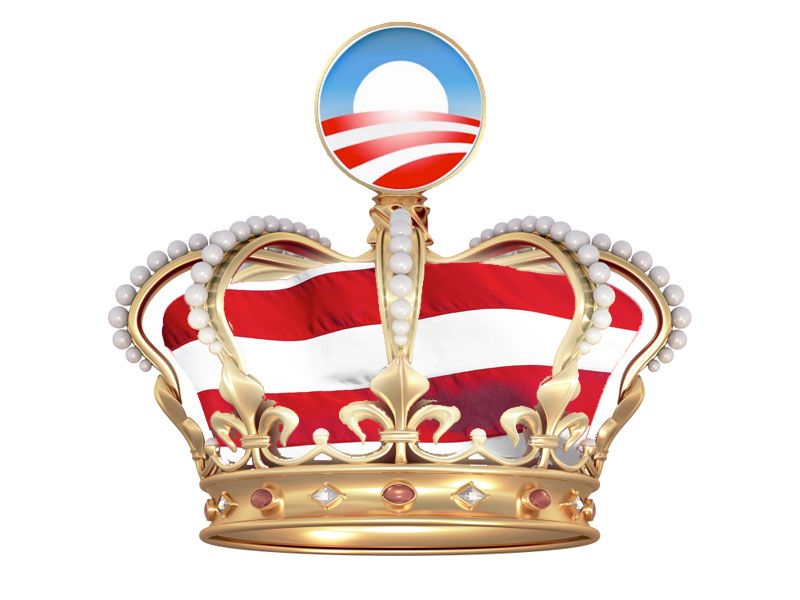
Over the course of the past six years, constitutional government in this country has seen more than its share of defeats. In fact, the sustained assault against the separation of powers, limited government, and the system of federalism instituted by our founders has given Americans many reasons for worry. The very concentration of power that the Constitution was designed to guard against is taking place before our very eyes, and the rule of law, which is the necessary prerequisite for freedom, is the casualty. Presidents of both parties have often exceeded their authority in the use of executive orders to alter, amend, and abolish acts of Congress, but the Obama Administration has set a new gold standard when it comes to circumventing the Constitution.
That’s why this week’s ruling on President Obama’s illegal appointments to the National Labor Relations Board by the United States Supreme Court was so significant and critical. It represents the beginning of a significant push-back against this Administration’s policy of governing on its own.
In a 9-0 decision, the Supreme Court upheld the decision of a lower court to invalidate President Obama’s so-called “recess” appointments to the National Labor Relations Board (NLRB) during Congress’s holiday break in January 2012. The NLRB is, by charter, a federal agency that oversees labor union elections and organizing efforts, but the Obama Administration has attempted to turn it into a pro-union attack dog. After all, the President has had no stronger base of support than Labor Unions, which have raised huge sums of money and bases of support for him since his days in the Illinois State Senate. Following the 2012 midterm elections, and the subsequent House GOP Majority those elections ushered-in, the President and his team had little remaining legislative avenue to advance its pro-union, anti-right-to-work agenda.
Knowing full-well that companies fleeing blue states to red states would further squeeze shrinking union membership, and thus fundraising power for prominent Democrats, the Obama Administration elected to use the NLRB as the bullying agency to stem the flow of companies and capital from high-tax, pro-union states to low-tax, right-to-work states, while doing an end-run around Congress. The problem with the Administration’s NLRB strategy, however, was that the Board had several vacancies that would need to be filled to ensure that the President had enough liberal ideologues on the Board to ensure that his anti-right-to-work, pro-union regulatory policies were put into place. Given GOP resistance to his hard-left nominees to the NLRB, which do require US Senate confirmation, the President decided to go it alone and appoint his nominees while Congress was on a holiday break.
The problem with the President’s so-called “recess” appointments is that the Senate was still formally in session when the President made the appointments. While the President does have constitutional authority to appoint officers of the government on a temporary basis while the Senate is not in session, he does not have the power to declare the Senate in recess when it has not declared such a recess itself.
By ignoring the Senate’s decision to formally stay in session, precisely to prevent the President from making recess appointments during the Christmas / New Year’s Holidays in 2011-2012, the President basically asserted that he had the authority to determine when the Senate was and was not in recess on his own. This is blatantly unconstitutional, and an affront to the separation of powers. On this basis, the DC Circuit Court of Appeals invalidated the President’s NLRB appointments declaring them null and void. Today, the US Supreme Court in a 9-0 decision upheld the gist of the DC Circuit Court’s decision that the President doesn’t have the power to make “recess” appointments while the Senate is in session, because he doesn’t possess the power to adjourn the Senate.
As we celebrate Independence Day next week, it’s a great time to reflect on how the Supreme Court’s decision checks a president who tried to exercise a power over Congress that British King’s once exercised over parliament: the power to adjourn and / or dissolve it. One of the complaints of our founders against the British Crown was that the King negated the voice of the people by trampling the rights of Parliament and legislative assemblies. Allowing an American President to, in effect, declare Congress in recess by making illegal appointments while the US Senate is in session, would be to condone an executive authority that the Constitution explicitly sought to restrain. I believe that America’s founders would have been proud of the Supreme Court today, because they kept a very trampled, bruised, and beaten Constitution on life support long enough for Americans to revive it.




